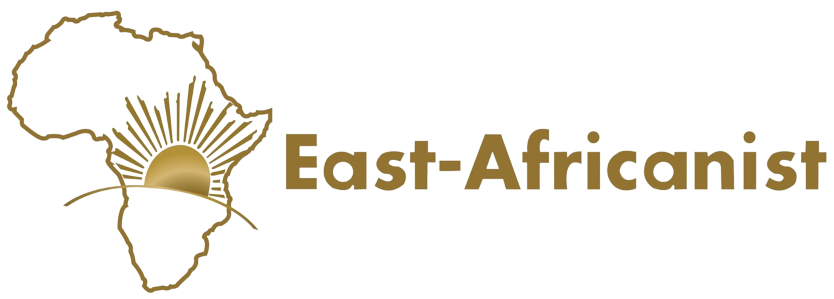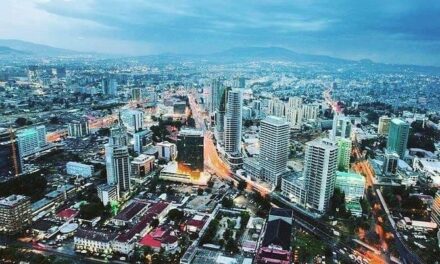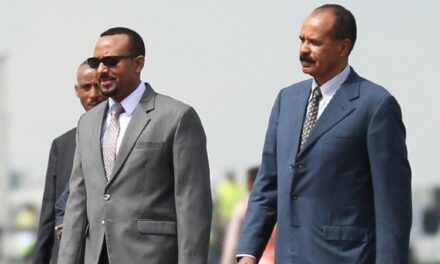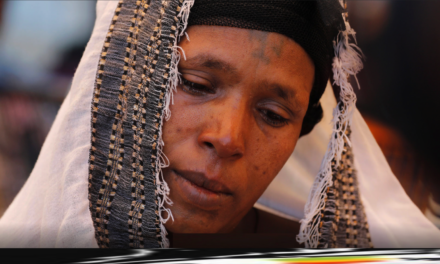Yonas Biru (Ph.D)
The current political crisis in Ethiopia is caused by a head-on collision between the Ethiopian Orthodox Tewahdo Church (EOTC) and an Oromo tribalist renegade splinter group that breached the ecclesiastical dogma of the Church, following the verses and tenets of the nation’s tribal Constitution. For all practical purpose, the EOTC has won. Only the mechanical ticking of the clock is yet to run its course to provide a timeframe for an event that has already unfolded in every sense but in a mechanical way. Here are key issues that wave themselves profusely to get our attention:
Abiy has blinked. Praise be to thee – O Lord the Almighty, for granting the EOTC a mighty power.
• The international society has quietly made its statement to the Prime Minister. No Stability, No Money.
• The international faith community from the Pope to the Head of the international Orthodox Complexes have lent unequivocal support to the EOTC. Praise be to thee – O Lord the Almighty
• The support from the Pope will open an extensive access to the international media. There are over 600 Catholic-based social media outlets and 118 Catholic newspapers in the US and Canada alone.
• With the Pope behind it, the EOTC can give Abiy more headache than TPLF has ever done in terms of imposing the EU sanction.
• Abiy is in desperate need of international support. He understands that without massive inflow of international funds his power is as good as dead in the water.
• Abiy’s meeting with officials of the tribal homelands did not go well. There was a near unanimous view that the government must stay out of the Church’s problem. The only exception was Shimelis Abdisa.
• The renegade leaders of the “Orthodox Church of Oromo and Nation-Nationalities” have lost, including in the Oromo tribal land and in all Nation-Nationalities that they anointed themselves to serve as the Synod of.
• The majority of Oromo Orthodox Christians are protecting their Churches from the renegade rebels.
• Two members of the renegade group have sought pardon from the EOTC and have been received back into the Church’s fold with forgiveness.
• Two more were apprehended by Oromo security forces to stop them from going to Addis Ababa to seek pardon from the EOTC.
• If Abiy reneges on his promise to meet the EOTC’s demands, it will have two dire implications. He will face the wrath of the international community and the EOTC’s domestic support will increase – Praise be to thee – O Lord the Almighty.
For a time, there was an argument between those who saw Abiy as the architect of the crisis and those who saw him as one who was reluctantly drawn into it. The latter argued that he sided with the renegades because of his opportunist political calculation to stay in power.
This issue is irrelevant now. From a political analysis and strategy point of view, what matters is what governs his political calculus today, not what governed it yesterday. Politics is dynamic, as the dynamic changes, so does the political calculus of politicians. As shown in bullet points above, today, whatever tickles and governs Abiy’s political impetus resides outside of the Oromo extremist political sphere.
The EOTC has publicly announced Abiy has promised to meet their demands, including their most critical demand that there can only be one Synod of the Orthodox Church. This means he will no longer legitimize the Oromo tribal Synod that the renegade group has established. Abiy or his administration has neither refuted, nor taken issue with the EOTC’s public announcement of his promise. No matter how one slices and dices it, Abiy has blinked.
Moving forward, the EOTC’s uncompromising stand and unreachable power to protect its ecclesiastical domain from tribal forces, and the PM’s ability (or lack thereof) to control rabid Oromo tribal politics will define the future of Ethiopia. Now that Abiy has blinked, the question is: What is its implication on Oromo tribal politics? Sadly, (rather very sadly), the political reality in the Amhara tribal land has no relevance because it has no political strategy framed around a coherent political agenda that resonates with the people of Amhara. What it has is cacophonous zealots who confuse the political heat their rhetorical firework generates to a shining light of political enlightenment.
The potentially strongest force to counterbalance Oromo forces is in a state of deep sleep, bordering on a comma in the Amhara tribal land. Sadly, nothing of substance and strategy will happen until Shene-Amhara and its diaspora surrogates such as Ethio-360, Vision Ethiopia and a plethora of Amhara organizations with fancy names and near dead brains are crowded out.
Given that the Amhara tribal land is in a self-induced comma-like status, Ethiopia’s future can be reduced to one line: “As the Oromo Tribal Land Goes, So Goes the Nation.” In this regard, the relevant question is: Which way will Shimelis Abdisa swing? Is he going to blink with Abiy or stand with tribalist elements who want to use the Church conflict as a fulcrum to empower Oromo tribalists? How will the Oromo kleptocratic establishment that is sucking Ethiopia dry, and its armed gangsters react?
Again, we must remember Abiy has regional, national, and international interests to juggle. For Shimelis it is primarily (not exclusively), tribal interest. I say not exclusively because ultimately, he wants to stay in power and a direct conflict with the Abiy administration is not in his best interest.
Political prediction is a risky undertaking. Only those who feel they are taking too much space unless they stand on the edge dare to venture where angels fear to trade. Let me dare to venture to the edge of Ethiopian politics and predict the future.
My prediction is that Abiy and Shimeles will try to find a way for an honorary exit, without addressing the root cause of the problem. Their first and most preferred path will be to rein in the renegade forces to reintegrate themselves back into the EOTC with a pretext that they have managed to get the Synod to pay attention to their demands with a promise to address the problems in an agreed timeframe. If this happens it would be a win-win outcome for all in the short term. But it will not address the essence of the problem. The Church will remain intact. The renegades will get a sort of an honorary exit to save themselves from total loss. Most importantly, a national crisis will be averted at least for now.
If the renegades stay firm with their position to establish an “Oromo and nations and nationalities Orthodox Church with its own Synod”, the second possible outcome is for Shimelis to side with Abiy and blink. He understands more than anyone that a conflict between Abiy and Shimelis can sharpen the latent conflict within the Oromo tribal.
Until now, this scenario was avoidable because there was no organized opposition to force them make a difficult choice. Given the increasing loss of his power base outside of the Oromo tribal land, Abiy did not have reason to take on Oromo tribalist forces. Similarly, with growing tribal forces inspired by the spirit of Shene-Oromo, Shimelis was not ready to ruffle up their feathers. That game has changed.
Past incidences have borne witness that when push came to shave, Abiy will drop his allies like a hot potato in a NY second. The Oromo flag and Oromo Anthem debacle in Addis Ababa is a telling example. He was quite until Addis Ababans revolted. That triggered him to berate Adanech Abebe and her team, claiming he was not aware that it was done outside of Oromo charter schools. Abiy is likely to do the same with the champions of Oromo tribal Orthodox.
This is not to completely rule out an option of desperation that Abiy and Shimelis may consider. This involves building a broader Oromo coalition, including Oromo Shene, and inviting Jawar and Bekele Gerba to return home to build a strong Oromo coalition. This will be foolhardy on many levels.
First, the extremists will not trust Abiy. He has betrayed every coalition he has worked with. Just look where Abiy’s relationship with Ato Lemma Megersa stands today despite the fact that the latter was was the person who facilitated his ascent to the PM position.
Second. the Oromo tribal thirst for power is unquenchable. If Abiy manages to form a broader Oromo coalition that embraces Oromo-Shene, he will have to accept a diminished role, which he is very unlikely to do. If his desperation forces him to share power with Oromo extremist forces, he will be compelled to renege his promise to the EOTC. That will be the end of Oromo tribal kookoodom.
Abiy has learned the hard way that in terms of power, Addis Ababans who defeated the tribalization of Addis Ababa schools pale in comparison to the EOTC. No institution in the entire continent of Africa has the power to mobilize support in comparison to EOTC. Apart from the Church’s institutional architecture that commands over 60 million members, other social institutions from ጽዋ to እድር are associated with the Orthodox social enterprise. What makes this potent is that its DNA is spiritual and sacrifice for the Church is synonymous with sacrifice for God Almighty. Only a fool will take on such an institution.
For their own good, Abiy and Shimelis will have to deal with the increasingly emboldened Oromo tribal forces and their kleptocratic financiers or perish because of them. Abiy will not last another year if he fails to change course and force Shimeles to do the same in fundamental ways. Superficial actions, smooth-talking and/or externalizing the crisis will not work. ነገርየው “ጨው ለራስህስትል ጣፍጥ” ነው::
Yonas Biru (Ph.D) for @EAfricanist






Вибрационные кольца – предназначено для продления полового акта
[url=https://vibrokolca.ru/]эрекционное кольцо с вибратором[/url]
эрекционное кольцо с вибратором – [url=https://www.vibrokolca.ru]https://vibrokolca.ru[/url]
[url=http://www.google.rs/url?q=http://vibrokolca.ru]https://google.lv/url?q=http://vibrokolca.ru[/url]
[url=https://crona.id/10-bahan-furniture-untuk-lemari-dan-kabinet/#comment-5476]Виброкольцо – это секс-игрушка, эрекционное кольцо со встроенной или съемной вибрирующей «пулей».[/url] 4ee1_a3